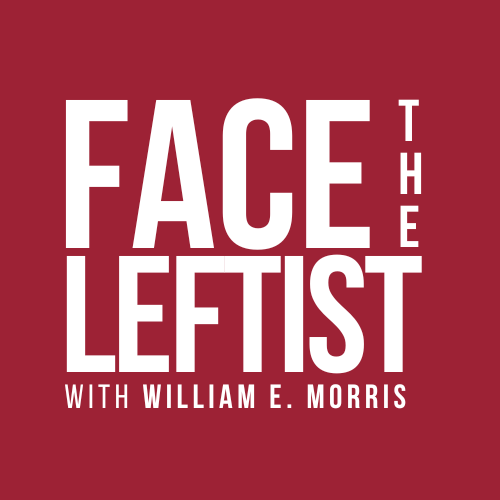Dark Money, Dumb Excuses, and the Farce of Brian Tyler Cohen

William Morris
Editor-in-Chief
It is a peculiar thing, to witness a generation convinced that it has reinvented the wheel, only to discover that the wheel is spinning on the same corrupted axle as always. Independent media, we are told, is the antidote to partisan spin. A place where truth is spoken plainly, free of corporate strings and political donors. Yet, in the curious case of Brian Tyler Cohen and his pet project Chorus, we find the exact opposite: an enterprise supposedly built to empower creators, in fact underwritten by the very sort of dark money super PAC that progressives once claimed to despise.
This is not an accident. It is not a misunderstanding. It is not, as Cohen feebly tried to suggest, merely an “incubator” for new voices in democracy. It is a textbook case of deception, double standards, and manipulation. And when a journalist with the temerity to tell the truth—Taylor Lorenz—dragged this story into the light, the response was not humility, not contrition, but fury. Fury from Cohen. Fury from his defenders. Fury from the entire cottage industry of influencers who depend on his coattails.
One must ask: what are they so afraid of?
The answer is clear: exposure. Because this scandal reveals what so many of us have suspected for years—that “independent” media, at least in the hands of certain influencers, is nothing more than a stage play, with donors hidden behind the curtain pulling the strings.
History:
Let us briefly examine the past, for history has a way of laying bare the patterns of the present.
American politics has long danced with money. In the nineteenth century, it was Tammany Hall, where votes could be bought with a wink and a bottle of whiskey. In the twentieth century, it was shadowy corporations funding candidates while the public pretended their votes mattered more than the checks signed in smoke-filled rooms. And in the twenty-first, the beast has grown even more insidious: “dark money” groups, shell organizations with noble-sounding names, sluicing billions through loopholes and back channels.
The 1630 Fund is one of the largest of these shadow creatures. A behemoth operating under the umbrella of Arabella Advisors, it has become a funnel for anonymous contributions that dwarf the budgets of entire political campaigns. Its reach is vast, its donors concealed, and its purpose singular: to bend democracy to the will of money.
To discover that Chorus, Cohen’s scholarship program, is tied to this fund is not surprising. It is, in truth, inevitable. The corruption was always going to creep into the influencer economy. The only question was when—and who would be caught first.
Context:
The promise of independent media was seductive: young creators, untainted by the cynicism of legacy outlets, would rise from YouTube, TikTok, and podcasts to bring unfiltered truth to the masses. No corporate boards. No network producers whispering into earpieces. Just raw, honest journalism and commentary.
But this promise depended on one thing: independence. True independence.
Cohen, with his carefully staged videos, his podcast interviews with Democrats, and his polished rhetoric, positioned himself as the vanguard of this movement. He became, for many, the face of progressive digital media. He railed against MAGA Republicans, cloaked himself in the banner of “pro-democracy,” and claimed to represent the future.
Then came the revelation: Chorus, his flagship project, was not a grassroots scholarship program at all. It was tethered directly to the 1630 Fund. Behind the inspiring language about empowering young creators lurked the same rot that poisons Washington: unaccountable money, flowing invisibly, shaping narratives without disclosure.
Independent? Hardly. Chorus is as independent as a marionette, its strings held by unseen hands.
My Story as a Disabled Self-Advocate in Arkansas:
Permit me to speak plainly. For twenty-four years, I have lived the life of a disabled self-advocate in Arkansas. My work has placed me in the thick of nonprofits, community coalitions, and so-called advocacy organizations. I know the stench of compromise when I encounter it. I know what it means to watch people who claim to serve the vulnerable instead serve themselves, cloaked in progressive language while feeding from the same trough of influence and self-preservation.
I have seen programs in Arkansas promise scholarships, training, leadership pipelines—all supposedly for the benefit of disabled Arkansans. And I have watched these same programs crumble into self-serving machines where money disappears, accountability evaporates, and the very people meant to be served are left abandoned.
That is why the Chorus scandal strikes me as so familiar. Cohen is playing an old game with a new coat of paint. He wraps it in the language of democracy and progress. He waves the banner of independence. But beneath it all, it is the same rot: money flowing from shadowy organizations into programs that exist more to control than to empower.
Brian’s Pathetic Response:
And so to the performance itself: Cohen’s response video.
What a pitiful display. Rather than owning the truth, he delivered a masterclass in evasion. He waved away the evidence. He attacked the messenger. He attempted to rope Taylor Lorenz in with Candace Owens, as though a respected journalist and a right-wing agitator are cut from the same cloth. The comparison was so absurd it would have been comical—if it were not also a desperate attempt to distract his audience from the truth.
His credibility dripped away with every word. This was not the posture of a man defending the truth. This was the posture of a man cornered, flailing, desperate to convince his followers that the scandal was not real, even as he admitted pieces of it himself. He acknowledged the 1630 Fund was their sponsor, but insisted, laughably, that it had no influence over Chorus participants.
Influence without disclosure is the very definition of manipulation.
Calling Out Jesse Dollarmore:
Then there is Jesse Dollarmore. His intervention was as predictable as it was pathetic. He dismissed the scandal, insisting that progressives should focus on Trump, not on Cohen’s dark money ties.
This is cowardice. It is moral relativism dressed up as strategy. “Do not look here,” he says, “look there.” But accountability is not a buffet. One cannot demand truth from Trump while excusing deception from Cohen. To excuse rot because it festers on “your” side is to admit that your side is no better.
And when Dollarmore deflects, when he tells his audience to avert their eyes, he reveals himself not as a watchdog, but as a lapdog.
Calling Out TikTok Defenders:
The TikTok defenders are worse still. Their shrill cries filled timelines: “Retract the article! Taylor Lorenz is lying! This is a hit job!”
But if the article contained nothing of substance, why the panic? Why the frothing demand for retraction? Their emotional frenzy betrays their weakness. It is the behavior of courtiers terrified that their king has been caught naked. They do not defend truth; they defend their own fragile identities, built on the illusion that their chosen influencer is beyond reproach.
Their behavior is proof enough that the scandal is real.
The Scholarship Scam:
At the core of this farce lies the so-called scholarship. Cohen insists Chorus is nothing more than a program to pay aspiring creators while they learn their craft. This sounds benevolent, even noble. But scratch the surface and the absurdity becomes clear.
Why, pray tell, must one be *paid* to learn content creation? The tools are free. The platforms are free. The knowledge is abundant. The internet itself is a boundless academy. Every skill a creator requires—from editing to marketing to monetization—is already within reach of anyone willing to learn.
No, this scholarship is not about education. It is about loyalty. It is about creating a cadre of creators whose livelihoods are tied to Chorus, whose careers are indebted to the program, and who will therefore echo the narratives approved by those who fund it. This is influence laundering, pure and simple.
The most absurd revelation of all was that graduates undergo check-ins to ensure they are not doing anything “diabolically evil.” What does that mean? Who defines “evil”? A checklist? A rubric? Is evil disagreeing with Democratic leadership? Is evil refusing to parrot the party line? The phrase is nonsense, and yet it was delivered with a straight face, as though it explained everything.
This is not independence. It is indoctrination with a stipend.
Closing
This scandal is not a minor footnote. It is a revelation.
It reveals that “independent” media is not immune to corruption. It reveals that dark money, like water, seeps into every crack of our democracy. And it reveals that too many creators are loyal not to truth, but to tribe.
Brian Tyler Cohen’s Chorus is a scam. His defense is pathetic. His defenders are clowns. And the entire edifice of pro-Democracy™ influencers is crumbling under the weight of its own hypocrisy.
We do not need their scholarships. We do not need their dark money. What we need is courage, transparency, and a spine strong enough to call out corruption no matter where it hides.
Cohen has failed. His project has failed. And if independent media is to mean anything, we must not fail ourselves by looking away.

